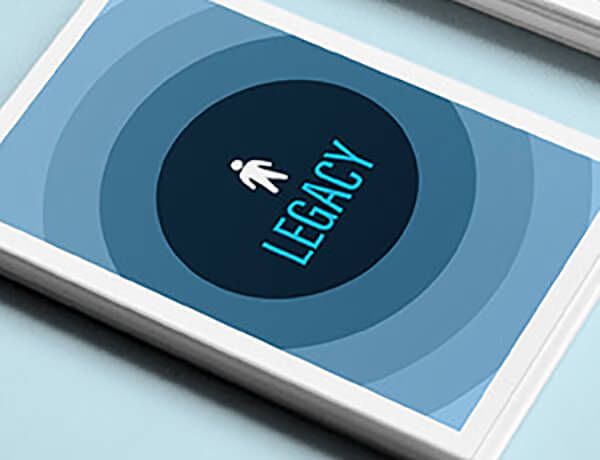Fighting Rising Inflation
Four Ways to Protect Your Financial Life: Everywhere we turn right now, it seems we are spending more. I notice it most at the gas pump and at the grocery store, but for savvy shoppers, I bet you’ve noticed that almost all the items you purchase regularly are creeping up in price. Chances are you can’t make it through the day without seeing or hearing a story about the dreaded 9 letter word – inflation. For a while, we heard the term “transitory inflation” which meant it was supposed to be temporary. Not since the late 1970s and early 80s has the U.S. seen the inflation rates we are currently experiencing which means anyone under the age of 50 has little experience on protecting their financial life during periods of rising inflation.
What exactly is inflation? Webster’s dictionary defines inflation as “a continuing rise in the general price level usually attributed to an increase in the volume of money and credit relative to available goods and services”. We could debate until we are blue in the face on the “how we got here” portion of the definition. So instead, let’s focus on the first part of the definition, “a continuing rise in the general price level.” Our dollars aren’t going to buy as much as they once did because things cost more. Our cash flow can get tighter even if we take steps to cut down on discretionary spending. The U.S. Bureau of Labor Statistics utilizes the Consumer Price Index (CPI) to measure the average change over time in the prices paid by urban consumers for a market basket of consumer goods and services. On May 11, 2022, the U.S Bureau of Labor Statistics released their most recent numbers and reported that over the last 12 months, the all-items index increased 8.3 percent before seasonal adjustment. So, when faced with rising inflation, what are a few basic steps we can do to protect our financial life?
Brush Up on Your Budget: The first way to protect your financial life during rising inflation is to utilize a budget. Whether you are an avid user of a budget or absolutely hate the thought of building a budget, it’s time to pay closer attention to the dollars we are spending. What areas of your cash flow aren’t discretionary? Are they impacted by inflation? Fixed interest rate payments such as mortgages aren’t impacted. However, variable debt payments often aren’t discretionary, and they can be impacted by inflation. As the Fed raises interest rates to combat rising inflation, your variable payments are likely to increase as well. Feeding your family isn’t discretionary. Whether it’s cooking at home or eating out, the cost of feeding them has gone up. Prioritize the non-discretionary items in your budget first. Then take an inventory of the discretionary areas of your remaining cash flow. It stands to reason that almost every item is impacted by inflation. Travel and home renovation projects are two key areas to review. Can you shave off some costs? Can you postpone the project or trip? We put a long-planned deck remodel on hold for now due to the rapidly rising costs of building materials because it was something we wanted but not something we absolutely had to have right now. However, we prioritized travel because it’s important to us, and we’ve budgeted more than normal for items like air fare, rental car gas and eating out. It’s important to acknowledge that trade-offs may be necessary. Employers aren’t raising wages at the same rate of inflation, and if you are retired, your sources of retirement income are also impacted by inflation.
Seek Out Savings After you’ve checked your budget and reprioritized as needed, it’s time to go on the hunt for savings in order to fight inflation. Consider changing up your normal grocery shopping routine to find the best deals. Buying in bulk at wholesale clubs, while potentially more expensive upfront, can save you money over the long term. For our family, we used to shop at a local grocery store and then would fill in the gaps at Costco. Now we have completely flipped our buying habits. We can get fruits and veggies either in double the quantity for the same price or less at Costco, so we start there and then buy smaller perishable items at the local grocery store. Our local grocery store also has a program called Fuel Points which allows us to save money when filling up our vehicles. Sometimes this is even more advantageous than buying gas at a wholesale club.
Rising inflation can also impact your monthly energy bills. Recently on social media platforms, published summer recommendations for air conditioning from the U.S. Department of Energy began to circulate. They suggest that the thermostat be set to 82 F when sleeping and 85 F when out of the house for maximum savings. The backlash was swift and most of the commentators stated they would never be comfortable. As a woman who grew up in Georgia, I can’t even fathom trying to sleep in a house set at 82! Even if you don’t agree with the recommendation, you can be mindful of settings and usage. A smart thermostat such as Ecobee or Nest can do much of the work for you by allowing you to input routine settings and detecting if no one is home and adjusting the temperature appropriately.
Another area to shop for savings impacts the cash you may hold. Rising interest rates may have negatively impacted areas of your financial life, but one area where they are having a positive impact is the savings rates. CDs and Money Market funds are on the rise, and it’s time to review. While these rates aren’t likely to keep up with rising inflation, they can help close the gap for the cash in your portfolio.
Conduct an Insurance Review Do you own a home, car, boat or other recreational vehicle? I bet you answered yes to at least one of these so it’s time to conduct an insurance review. When was the last time you checked your Homeowner’s policy for your home’s replacement value? If you are like me, it has been too long. We are keenly aware that the cost of buying a home, or a car is on the rise, but if you aren’t in the market to buy a home or car you may think you aren’t impacted. What would happen though if your home sustained fire or wind damage? What would happen if your car was totaled? For example, let’s consider you have a home that you purchased 8 years ago for $500,000. At the time the cost to replace that home may have been similar to the purchase price. However, with some building materials costing 300% more than they did two years ago, $500,000 could be well short of what it would take to build your exact home now. While we may not think a tragedy would happen to us, they do occur, and you need to consider the financial implications.
The cost to repair or replace the large ticket items has gone up, and it can be complex when the item is typically considered a depreciating asset. Cars, boats and RVs are examples of depreciating assets that require financial consideration particularly if you have an outstanding loan balance. No one wants to be “upside down” (where you owe more than the item is worth) on a loan. Rising inflation and supply chain issues make this a real possibility. Review your insurance policies to verify your coverages, particularly your replacement cost coverage. Won’t my insurance rates go up you may ask? They may. You must determine if you are willing to handle the risk of not paying the increased premium. Could you absorb the cost difference to replace or rebuild an asset if there is a shortfall? There is no “one size fits all” answer here so consider your personal financial situation and risk tolerance.
Invest for the Long Term The fourth way to fight rising inflation is to review your investment allocation. Historically, the equity market outpaces inflation. I recognize that the recent decline and volatility of the equity market has many nervous, and if that’s you, please know that CapSouth’s advisors understand how you are feeling and will not be dismissive. Investing overall right now can seem daunting. Rising interest rates are impacting a portion of the bond market negatively. The equity market is bouncing all over the place and terms like “cash is trash” are being used by television news pundits. Nothing feels “safe”. So, we turn to the past to learn how to manage for the future.
If you are still working with a long-time horizon, you may consider increasing contributions to your retirement savings via your workplace retirement plan (if you are not already maxing out) or via a taxable investment account if you have the discretionary income to do so. In a recent CNBC article [https://www.cnbc.com/2022/03/22/why-high-inflation-makes-investing-in-the-stock-market-a-smart-move-.html], Ed Slott, a nationally recognized IRA distribution expert, professional speaker, television personality, and best-selling author, was quoted as saying, “If you keep contributing to your retirement savings, you’ll always have more,” He also recommended additional investment strategies such as dollar-cost averaging which he said, “smooths out your contributions over time, so the impact of volatility is much less.”
If you are no longer contributing to your investment assets due to retirement or other reasons, it’s still wise to reevaluate your holdings and your risk tolerance. Were you overly aggressive when the market was on its historic march up and perhaps underestimated how you would feel in a down market? It’s okay if you answered yes, and you wouldn’t be the only one. It’s important that you share how you are feeling with your advisor so they can help navigate both your financial and emotional wellbeing. Diversifying and rebalancing are additional strategies your CapSouth advisor may utilize to help round out your portfolio to fight rising inflation.
Final Thoughts on Fighting Inflation Fighting rising inflation has become top of mind for many of us. We can’t seem to get away from the impacts of rising inflation or the stories about it. As a former journalism student who worked at a major television station in college, some of the best advice I can give you is this – tune out the noise. This may mean turning off the television or radio channel. Perhaps it means taking a break from social media when things get to be overwhelming. Try to remember that periods of sustained inflation have been rare for the U.S. Instead of focusing on the news or trying to figure out things on your own, it may be time to engage with a financial advisor if you have never done so. CapSouth advisors are well equipped to discuss your personal inflation impact and to help you adjust accordingly. They will apply financial planning techniques to your specific situation which will ultimately be more beneficial to you than trying to listen to media personas or trying to figure it out yourself. We take great pride in being the voice of reason and calm in a sea of chaos. We always have your best interest in mind, and that extends to helping you fight inflation as well. If rising inflation is adding anxiety to your financial life, we’d love to help.
To discuss this article further or to learn more about CapSouth Wealth Management, visit our website at www.capsouthwm.com or call 800.929.1001 to schedule an appointment to speak with an advisor.
By: Jennifer Fensley, CFP®, CRPS® | Wealth Advisor
Investment advisory services are offered through CapSouth Partners, Inc, dba CapSouth Wealth Management, an independent registered Investment Advisory firm. Information provided by sources deemed to be reliable. CapSouth does not guarantee the accuracy or completeness of the information. CapSouth does not offer tax, accounting, or legal advice. Consult your tax or legal advisors for all issues that may have tax or legal consequences. This information has been prepared solely for informational purposes, is general in nature and is not intended as specific advice. Any performance data quoted represents past performance; past performance is no guarantee of future results. This article contains external links to third party content (content hosted on sites unaffiliated with CapSouth Partners). CapSouth makes no representations whatsoever regarding any third party content/sites that are accessible in this article. Linking to these third-party sites in no way implies an endorsement or affiliation of any kind between CapSouth and any third party, including legal authorization to use any trademark, trade name, logo, or copyrighted materials belonging to either entity.



